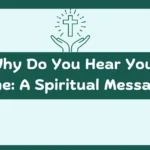“True strength is shown not in seeking revenge, but in the power of forgiveness and justice.”
The topic of revenge has long been a source of contemplation and debate. In a world where hurt and betrayal are common, the instinct to retaliate can be strong. Yet, the Bible presents a different perspective, one that emphasizes forgiveness and divine justice over human retribution.
This blog post delves into over 30 Bible verses that address revenge, providing insights on how these teachings can guide us toward a more compassionate and understanding mindset. When we face situations where we feel wronged, it is easy to let our emotions drive us toward seeking revenge.
However, the scriptures remind us of the importance of taking a step back and considering the greater implications of our actions. Forgiveness is not merely about letting go; it’s about freeing ourselves from the chains of anger and resentment.
As we navigate this complex emotional terrain, we can find solace in biblical teachings that highlight the values of mercy and justice. Through an examination of various scriptures and real-life examples, we can gain a deeper understanding of how the Bible addresses the concepts of revenge and forgiveness.
By doing so, we hope to inspire readers to seek healing and justice in their own lives, aligning their actions with the principles laid out in the Word of God.
1. Understanding Revenge in the Bible
- Verse 1: Romans 12:19 – “Do not take revenge, my dear friends, but leave room for God’s wrath.”
- Verse 2: Deuteronomy 32:35 – “It is mine to avenge; I will repay.”
- Verse 3: Proverbs 20:22 – “Do not say, ‘I’ll pay you back for this wrong!’ Wait for the Lord, and he will avenge you.”
- Verse 4: Matthew 5:38-39 – “You have heard that it was said, ‘Eye for eye, and tooth for tooth.’ But I tell you, do not resist an evil person.”
- Verse 5: Leviticus 19:18 – “Do not seek revenge or bear a grudge against anyone among your people, but love your neighbor as yourself.”

- Verse 6: 1 Peter 3:9 – “Do not repay evil with evil or insult with insult. On the contrary, repay evil with blessing.”
Real-Life Example:
Sarah found out that her colleague, Lisa, had taken credit for her work. Initially, Sarah felt a strong urge to confront Lisa aggressively or even sabotage her efforts.
However, after reflecting on these verses, she chose to address the issue calmly, discussing it with her manager instead. This decision not only helped resolve the situation but also reinforced her integrity and professionalism.
2. Forgiveness Over Revenge

- Verse 7: Ephesians 4:32 – “Be kind and compassionate to one another, forgiving each other, just as in Christ God forgave you.”
- Verse 8: Colossians 3:13 – “Bear with each other and forgive one another if any of you has a grievance against someone. Forgive as the Lord forgave you.”
- Verse 9: Luke 6:37 – “Do not judge, and you will not be judged. Do not condemn, and you will not be condemned. Forgive, and you will be forgiven.”
- Verse 10: Mark 11:25 – “And when you stand praying, if you hold anything against anyone, forgive them, so that your Father in heaven may forgive you your sins.”
- Verse 11: Matthew 6:14-15 – “For if you forgive other people when they sin against you, your heavenly Father will also forgive you.”
- Verse 12: James 1:19-20 – “My dear brothers and sisters, take note of this: Everyone should be quick to listen, slow to speak, and slow to become angry.”
Real-Life Example:
After being hurt by a close friend’s betrayal, James felt bitterness consuming him. Remembering Ephesians 4:32, he decided to reach out and have a heart-to-heart conversation with his friend. This act of forgiveness not only restored their friendship but also lightened James’ emotional burden.
3. God’s Justice: A Divine Perspective
- Verse 13: Isaiah 61:8 – “For I, the Lord, love justice; I hate robbery and wrongdoing.”
- Verse 14: Psalm 94:1 – “O Lord, the God who avenges! O God who avenges, shine forth!”
- Verse 15: Romans 12:20 – “On the contrary: ‘If your enemy is hungry, feed him; if he is thirsty, give him something to drink.’”
- Verse 16: 2 Thessalonians 1:6 – “God is just: He will pay back trouble to those who trouble you.”
- Verse 17: Psalm 37:28 – “For the Lord loves the just and will not forsake his faithful ones.”
- Verse 18: Nahum 1:3 – “The Lord is slow to anger but great in power; the Lord will not leave the guilty unpunished.”
Real-Life Example:
When Mary was wrongfully accused of misconduct at work, she was devastated. Instead of retaliating against those who spread false rumors, she placed her trust in God’s justice. Over time, the truth came to light, and Mary’s reputation was restored, demonstrating that divine justice ultimately prevails.
4. The Role of Anger in Revenge

- Verse 19: James 1:20 – “Because human anger does not produce the righteousness that God desires.”
- Verse 20: Proverbs 29:22 – “An angry person stirs up conflict, and a hot-tempered person commits many sins.”
- Verse 21: Ephesians 4:26-27 – “In your anger do not sin: Do not let the sun go down while you are still angry, and do not give the devil a foothold.”
- Verse 22: Proverbs 15:1 – “A gentle answer turns away wrath, but a harsh word stirs up anger.”
- Verse 23: Colossians 3:8 – “But now you must also rid yourselves of all such things as these: anger, rage, malice, slander, and filthy language from your lips.”
- Verse 24: Ecclesiastes 7:9 – “Do not be quickly provoked in your spirit, for anger resides in the lap of fools.”
Real-Life Example:
Tom frequently lashed out at his coworkers when frustrated. After learning that his anger only exacerbated conflicts, he sought counseling and focused on applying Proverbs 15:1. He started responding to disagreements with patience, transforming his workplace relationships.
Bible Verses About Beautiful Women
5. Compassion: A Pathway to Healing

- Verse 25: Matthew 5:7 – “Blessed are the merciful, for they will be shown mercy.”
- Verse 26: Luke 23:34 – “Jesus said, ‘Father, forgive them, for they do not know what they are doing.’”
- Verse 27: Galatians 6:1 – “Brothers and sisters, if someone is caught in a sin, you who live by the Spirit should restore that person gently.”
- Verse 28: Matthew 18:21-22 – “Then Peter came to Jesus and asked, ‘Lord, how many times shall I forgive my brother or sister who sins against me? Up to seven times?’ Jesus answered, ‘I tell you, not seven times, but seventy-seven times.’”
- Verse 29: 1 John 1:9 – “If we confess our sins, he is faithful and just and will forgive us our sins and purify us from all unrighteousness.”
- Verse 30: Philippians 2:4 – “Not looking to your own interests but each of you to the interests of the others.”
Real-Life Example:
Linda volunteered at a shelter, offering compassion to those in need. One day, she met a woman whose past mirrored her own struggles. Linda’s empathy, rooted in Matthew 5:7, led to a lasting friendship and healing for both women.
6. Prayer as a Tool for Forgiveness

- Verse 31: Matthew 5:44 – “But I tell you, love your enemies and pray for those who persecute you.”
- Verse 32: 1 Thessalonians 5:16-18 – “Rejoice always, pray continually, give thanks in all circumstances.”
- Verse 33: Luke 18:1 – “Then Jesus told his disciples a parable to show them that they should always pray and not give up.”
- Verse 34: Philippians 4:6-7 – “Do not be anxious about anything, but in every situation, by prayer and petition, with thanksgiving, present your requests to God.”
- Verse 35: Mark 11:24 – “Therefore I tell you, whatever you ask for in prayer, believe that you have received it, and it will be yours.”
- Verse 36: James 5:16 – “The prayer of a righteous person is powerful and effective.”
Real-Life Example:
After a heated argument with her sibling, Emma felt a strong desire for revenge. Instead, she turned to prayer, asking God to heal their relationship. Through prayer, Emma found peace and eventually reached out to reconcile, transforming the anger into love.
7. The Healing Power of Forgiveness

- Verse 37: Isaiah 43:25 – “I, even I, am he who blots out your transgressions, for my own sake, and remembers your sins no more.”
- Verse 38: Matthew 9:6 – “But I want you to know that the Son of Man has authority on earth to forgive sins.”
- Verse 39: 1 John 2:12 – “I am writing to you, dear children, because your sins have been forgiven on account of his name.”
- Verse 40: Luke 7:47 – “Therefore I tell you, her many sins have been forgiven—as her great love has shown. But whoever has been forgiven little loves little.”
- Verse 41: Psalm 103:12 – “As far as the east is from the west, so far has he removed our transgressions from us.”
- Verse 42: John 8:7 – “Let any one of you who is without sin be the first to throw a stone at her.”
Real-Life Example:
David struggled with guilt after betraying a friend. When he embraced the forgiveness promised in Isaiah 43:25, he experienced a profound sense of relief and was able to mend the broken relationship, illustrating the liberating nature of forgiveness.
Why is forgiveness emphasized over revenge in the Bible?
Forgiveness is emphasized over revenge in the Bible because it reflects the nature of God and promotes healing and reconciliation. When individuals forgive, they align themselves with God’s will, fostering peace within themselves and their communities.
This approach encourages personal growth and helps break the cycle of hurt and retribution, paving the way for love and understanding to flourish.
Key Insight
What does the Bible say about taking revenge?
The Bible warns against seeking revenge and encourages leaving judgment to God. Verses like Romans 12:19 remind us that vengeance belongs to God.
How can I practice forgiveness in my daily life?
Start by acknowledging your feelings, praying for guidance, and consciously choosing to let go of grudges. Engage in open communication with those you feel wronged by.
Are there any consequences for not forgiving others?
Holding onto unforgiveness can lead to bitterness, emotional distress, and strained relationships. It can hinder your spiritual growth and peace of mind.
What role does prayer play in forgiveness?
Prayer is a powerful tool for processing emotions, seeking guidance, and fostering a spirit of forgiveness. It helps individuals connect with God and find strength to forgive.
How can I help others who struggle with forgiveness?
Be supportive by listening to their feelings, sharing relevant scriptures, and encouraging them to seek God’s help through prayer and reflection.
Conclusion
The concept of revenge often feels justified in our emotional responses, but the Bible offers a compelling alternative: forgiveness. By examining the numerous verses that speak to this topic, we gain insight into God’s heart for justice, mercy, and reconciliation.
As we strive to embody these principles in our own lives, we can foster healing—not just for ourselves, but also for those around us. Embracing forgiveness allows us to break free from the cycle of pain, enabling us to live lives filled with grace and compassion.

Hi! I’m Ethan Matthews, a tech enthusiast and avid traveler, sharing insights and adventures from my journeys around the globe.










